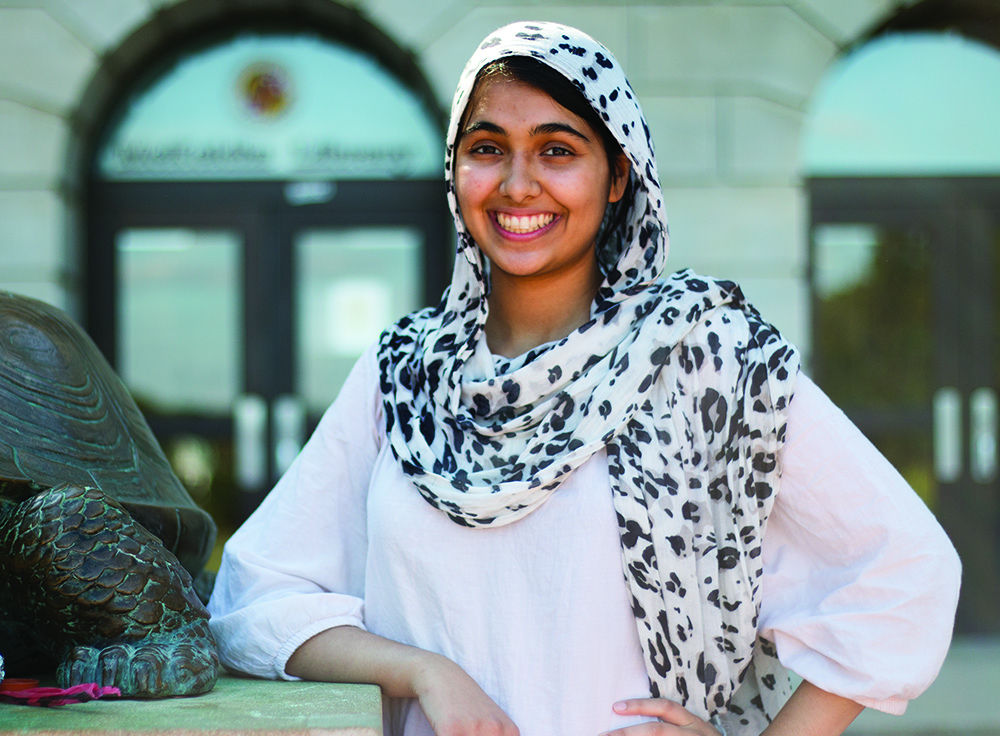
Shabnam Ahmed, a sophomore enrolled in letters and science, worked to stop the ballot initiative that would extend county council and county executive term limits from two four-year terms to three in Prince George’s County.
Prince George’s County voters rejected a ballot measure Tuesday to extend term limits for the county executive and county councilmembers by a narrow margin of 51 to 49 percent, according to unofficial results.
Question J, the only question on the ballot to be rejected, would have extended the term limit from two four-year terms to three. Provisional and absentee ballots have yet to be counted, but are unlikely to sway the vote.
To Shabnam Ahmed, a sophomore enrolled in letters and sciences, the decision showed voters’ desire for transparency and increased communication with elected representatives — something she said would be lost in county officials’ extended time in office.
“People are tired of politicians in our county as it is. Extending term limits would only increase the likelihood of creating a regime in politics, and voters don’t want that,” said Ahmed, who created an online initiative opposing the ballot question and partnered with local organizations to campaign against it.
Many elected officials came out in favor of the proposed extension, including Prince George’s County Executive Rushern Baker III (D) who just ran unopposed for his second term.
In an email from his campaign, Baker urged voters to approve the term limit extension, The Washington Post reported. In the message, he described the county as the only jurisdiction in the region that limits terms, suggesting it as a cause for the differences between Prince George’s County and others.
Term limits were first established in the county in 1992, after a grassroots movement collected petition signatures and created the ballot measure. In 2000, voters rejected a ballot question that would have removed the term limit altogether.
Newly elected representative Dannielle Glaros (D-College Park) declined to come out in support or opposition of the initiative, and said she saw both pros and cons in limiting terms. Still, she acknowledged a learning curve for representatives that she witnessed in her experience working in a councilmember’s office.
“It definitely takes a good few years to really understand what is part of the job, the expertise that might be developed in issue areas and knowing who to connect with on various things,” Glaros said.
In door-knocking across the district, Glaros said she heard a lot of views on term limits — everything from people who are avid supporters to those who believe term limits prevent experienced politicians from bettering the community.
Leonard Lucchi, a private practice attorney who provided legal advice for the committee pushing for Question J, argued extending the term limit would allow for the continuation of the county’s progress.
“We have a good team on the ground for Prince George’s County now,” said Lucchi, who previously served as county attorney. “There’s no reason we shouldn’t keep people doing a good job on the job.”
Lucchi cited the county’s growing commercial investment, school superintendent success, low homicide rates and new hospital development as evidence of the success of the last four years.
“We’re in leagues with some of the richest counties in the country — counties that don’t have term limits,” he said. “The Prince George’s County of today is a very different Prince George’s than in 1992. It’s matured a lot since then.”
Lucchi believes the question could appear before voters again, especially since the results were so close compared to the margin of defeat in 2000.
If that were to happen, Ahmed believes voters would again reject the measure.
“I have a feeling something like this will come up again, especially if you look at the history of the movement,” Ahmed said. “At the same time, I don’t think it would pass. Voters have spoken twice now, in 2000 and 2014, and their minds haven’t changed. They don’t want extensions.”



